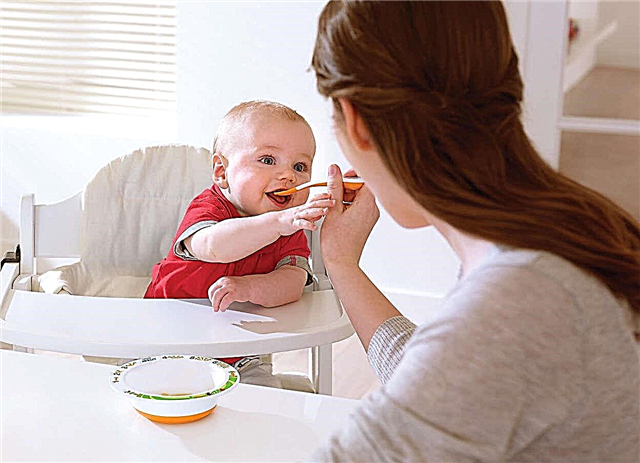How to teach a child to order? Tricky ways to educate a helper. Helpful hints.
When a child ignores a request to collect toys, you can hear the words:
- Well, lazy! All in daddy ... Yes, you can't crush genes with your finger.
Parents often blame the failure of raising a child on the character of the child and blame the "low-quality" genes. What are these genes and why are they to blame? Or maybe it's something else?
The child is not an adult! Due to the imperfect psyche and undeveloped willpower, children require a special approach. Cunning and small tricks can achieve more results than orders, reproaches and punishments. So, how to teach a child to order in the house.

8 commandments for parents
No tricks and methods will help teach a little slob to order if adults do not observe the following rules.
- Required: Lead by example. Young children love to imitate adults. Parents are a model of behavior for them. It is impossible to teach a child to clean up after themselves if mom and dad do not maintain order themselves. To instill a habit in a baby, it must first be brought up in the parents.
- Be consistent. Don't make indulgences. Taking pity on the child, and allowing him one, another time not to clean up after himself, he will understand that mom can be persuaded. And such persuasion-contracts will become the norm: "Can we do it later?", "Let's clean it up later."
- Don't forget to praise. Praise is a powerful incentive. Without it, it is difficult to instill a habit. Sometimes you just need to thank the kid so that he has a strong desire to "help".
- Educate regularly. You can't reinforce a habit by doing it from time to time. The child does not understand why yesterday it was possible, and today it is no longer possible. In other words, don't be lazy! Teach your baby to order every day.
- Never: Do not force or punish with work. It is impossible to cultivate a habit by violent methods. It is formed on a voluntary basis. Forcing and obliging to clean the house, you will discourage any desire of the child to help.
- Don't do it for him. The kid should not see that others can clean the room instead. Otherwise, he will understand that he does not have to do it himself. Even when the baby is tired or sick, it is better to postpone cleaning, but in no case clean up instead.
- Don't yell at the child. There is no need to make him a neurotic. Screams and scandals are unlikely to achieve a positive effect. The child will become afraid and clean the room with you. But as soon as the parents are beyond the threshold, things will be "laid out" anywhere.
- Don't criticize or scold for failure. The kid tried, wanted to help ... It happens to everyone ... Support the baby. Tell them that it will work out next time. You can't let him be disappointed. Otherwise, next time he will refuse to help in every possible way.
Getting used to order

Most often, parents are worried about the mess in the baby's room. Just put things in order, after 30 minutes it was gone. But the mess doesn't end there. After the conquest of the nursery, insolent toys begin to occupy other rooms. Let's say "STOP!" chaos, or ...
Tricky ways for a little bummer
Toys, it's time to go home
Build houses for toys and baby items. It is desirable that the dwellings are bright and colorful. It will be much more interesting for the kid to send toys home, rather than to restore "serious" order in the room.
Cars can make a garage out of cardboard. Paste it over with colored paper, cut out the gate and come up with a sign. It is convenient to put dolls in a wardrobe house, where the shelves are cots. Sew doll pillows and blankets there. The outside of the cabinet door also needs to be transformed: draw a window and a roof, clouds, the sun.
It is practical to store small items in small boxes. Cover them with colorful paper, mark the windows and make a triangular roof out of cardboard.
Let's play
- Option 1. "Who is faster?" Not a single child will refuse such entertainment. Challenge your baby. On command, an adult and a child collect the scattered toys in boxes. The one who collects the fastest won.
- Option 2 "Lay out correctly!" The point of the game is to sort items according to one criterion. For example, in one box are soft toys, in another - hard, small - large, wooden - metal, red - blue, etc.

Fabulous cleaning
Characters from fairy tales will help to clean up the room. Invite your child to reincarnate as a fairytale hero. The girl, having put on her wings, turns into a fairy of order or a sorceress of a children's room. The boy can become a cleaning robot or use toys (police rocket, assistant truck) to deliver items to places. Playfully, the baby will be happy to clean up the nursery and put things in order in his mother's bedroom, living room and other rooms.
Train. Adult - dispatcher
He coordinates the actions of the baby. The child depicts a train traveling around the room and listens carefully to what the dispatcher says. On the words "Station of robots" (dolls, trucks, cubes), the kid collects the named items and takes them to their places. Thus, it cleans the entire room.
General cleaning is announced!
If you are planning to put things in order in the apartment, do not forget about the baby. All tenants participate! Celebrate the start of the event. Divide your work and put on energetic music. It is even more interesting if for each cleaning the participants accumulate points, and then exchange them for a prize. Agree in advance how many points you need to collect.
History of toys
Finding once again scattered toys, hide your favorite ones. After some time, the child will notice the loss. Tell your child a story about a fairy-tale country where toys live that have been offended, forgotten, and not taken to their houses. Now his favorites have gone there to look for a new home. You can write them a letter, ask them to return. However, one must promise, henceforth, to put them in their places.
Raising an assistant
- Little "Help". Introduce your baby to any work that is feasible for him every day. When going to the store, grab a bag for the child. Help carry purchases. Ask to bring a bag, wash a cup, a toy. Wet a cloth, let it dust off accessible places. Vacuum the carpet together. Thank the little helper, and in no case redo the child's work in his presence. Otherwise, he will think that his mother did not like it, he will be disappointed and will not help in the future;
- Small duty. Come up with a small but constant task for the baby. For example, change the drinker for the parrot, feed the hamster, or make sure there is no dust in certain places. Depending on age, he can hang small things after washing, lay out products that have arrived from the store or washed spoons and pans in place. Responsibility fosters responsibility in children and makes them feel needed and useful;
- Ritual. A great way to keep your room tidy is to introduce custom. For example, before you go for a walk, lunch or go to bed, your baby needs to clean up the room. At first, the ritual is supported by the parents and the child. Over time, the adult's help diminishes, and the cleaning ceremony is entirely passed on to the younger family member. He gets used to it and after a while he puts things in order on his own, as soon as he is reminded that he will soon go for a walk, or dinner is already ready.
Video - How to Train Your Child to Order: 10 Steps
Notes for parents
- Train from an early age. The smaller the child, the easier it is to fix the habit. The kid gets used to cleaning up after himself. The order in the room becomes the norm for him. This will protect you in the future from unnecessary: "I do not want", "tired", "later";
- On the positive side. When addressing your child, include vivid positive emotions. Children become infected with a good mood, and then it is easier to negotiate with them. Work will go faster, more fun and more interesting;
- Choose the right time. Making a mess in a room is much easier than fixing it. A tired, sleepy child is not a helper. Take time to clean up before the baby gets tired or wants to sleep;
- Keep your baby interested. In other words, do not discourage the young helper from an early age. How often do you hear: “Don't touch! You're still small! ”,“ Put it in place. I'll clean it myself! " It is with these words that the child's desire to help begins to fade. Let him be small, clumsy, no matter what spills ... Help him, support, but do not forbid!
- Train gradually. When attracting the baby to cleaning, do not overdo it. Children should not be overworked. While the child is small, parents help him. The older the child, the less adult participation;
- Don't demand or expect perfect cleaning. It is impossible to immediately learn how to clean quickly and accurately. It takes time and practice for a child to hone their skills. At first, it is enough that the baby simply puts things in their places. Gradually teach to fold neatly, arrange beautifully;
- Don't teach reward. Otherwise, in the future, even for small work, you will be required to pay. Candy or cartoon as a reward can be in exceptional cases. The reward for tidying up the room should be praise.
Toddlers love to copy and help adults. You just need to notice their aspirations in time and maintain interest.
- 9 simple tips to teach your child to help around the house
- 40 basic things that a child should be able to do around the house at the age of 2-13
- Why should a child help with household chores?
- My two year old is the best au pair
- How to raise responsibility in a child
- What to do if a child is lazy - how to deal with child laziness
Video: How to teach a child to do homework
Psychologist Dmitry Karpachev
How to teach a child to put away toys? I want to say right away that you will not like my answer. I will explain it, justify why it should be so



